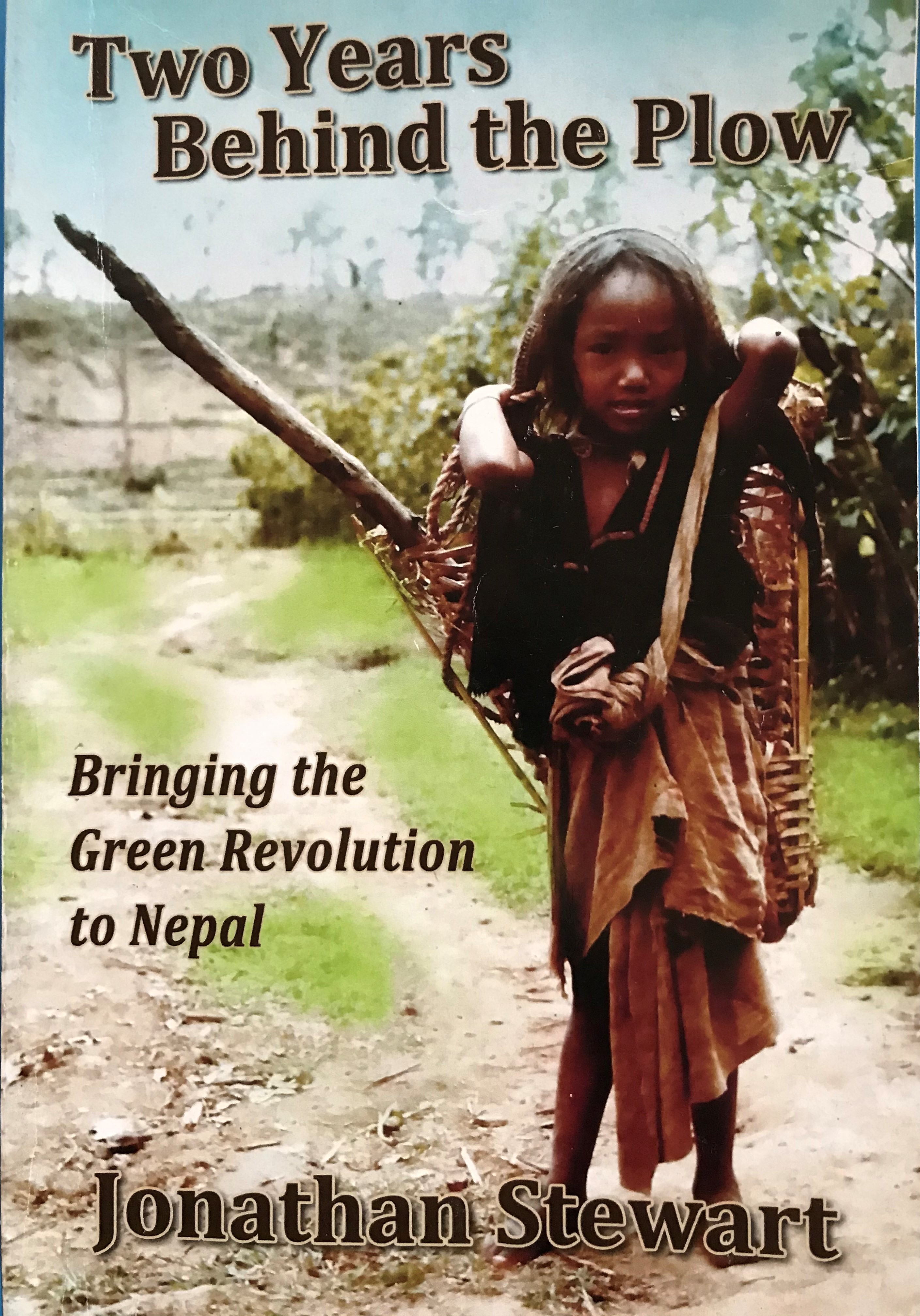Review — TWO YEARS BEHIND THE PLOW by Jonathan Stewart (Nepal)
 Two Years Behind the Plow: Bringing the Green Revolution to Nepal
Two Years Behind the Plow: Bringing the Green Revolution to Nepal
by Jonathan Stewart (Nepal 1969-72)
Self-Published
254 pages
October 2019
$20.00 (paperback) order from the author at:
20116 Cumulus Land, Bend OR 97702
Reviewed by John Comings (Nepal 1969-72)
•
In August of 1969, Peace Corps Nepal’s Group 19 landed in Kathmandu. Fifty years later, one of the group’s agriculture volunteers, Jon Stewart, finished writing a memoir of his time as a PCV. I was a member of Nepal 19, and Jon’s book is an honest portrait of a Nepal PCVs experience at that time. Being a PCV in Nepal 19 meant not seeing or talking with your family or friends for two years, communicating by writing letters and waiting a month for a response, and sometimes going for months without seeing another American. It also meant being sick all the time, often lonely, and occasionally malnourished. Why then, 50 years later, when we all got together at Estes Park in Colorado for a reunion, did we say to each other that it was the greatest adventure of our then young lives? Jon’s book helps explain why.
Jon grew up in Oregon and was drawn to its wilderness, not just as a hiker but as a smoke jumper fighting forest fires. He and a friend were camping out in the Three Sisters Wilderness area, when they ran into Willie Unsoeld, who had summited Everest in 1963 and later became the first Peace Corps Director in Nepal. Unsoeld encouraged them to join Peace Corps.
Jon took his advice and, a short time later, arrived at Peace Corps training at a former migrant worker camp near the University of California at Davis. Peace Corps training was focused on learning a new language, learning how to do the job of an agricultural adviser, and learning how to integrate into the culture and living conditions of Nepal. The great adventure began when he arrived at Bhiman, a small village in what was then a jungle southeast of Kathmandu.
Jon discusses his difficulty in learning Nepali well enough to live and work there for two years, but he was eventually able to understand the reason someone was laughing in a tea shop and to easily converse with farmers and shopkeepers. Jon explains how Nepal 19 volunteers were a small part of the worldwide Green Revolution, which was promoting hybrid seeds and modern agriculture to provide enough food for the growing world population. Jon is honest about his doubts about what he was able to accomplish but also his doubts about whether the green revolution was having a positive or negative impact on Nepal. Jon had to adjust to the lack of privacy and the difficulties of living in a rural village. He did learn to enjoy living in the village, but his intestinal track never adjusted to the food and water.
Jon used his leave time to go up into the mountains and to travel through India and Sri Lanka. For anyone who has been trekking in Nepal in the last 10 years, Jon’s stories of trekking when there were very few foreigners on the trail will make them envious. For example, Jon and another PCV were alone when they were on top of Kala Patthar, which is a spur that comes off Pomori and, at 18,514 feet, and provides the best view of Everest and several other of the world’s highest peaks. His leave time trip started in Darjeeling, a hill town that looks like an English village, went down to Madras (now called Chennai) and then by ferry over to Sri Lanka.
PCVs and RPCVs who served in Nepal will love this book, but those who served in other countries will find that the thoughts and feelings Jon shares are common to all. Near the end of the book, he sums up how the experience had an impact on him by saying, “For the remainder of my life, I would never again see the world in the same way, nor act in the same way in an attempt to change it.”
•
Reviewer John Comings (Nepal 1969-72) was a fisheries volunteer in Janakpur and then directed five Peace Corps training programs. He has a doctorate in education and has been a Vice President at World Education, Director of an education research center at Harvard, a member of the Obama Administration working in USAID, and is now back working at World Education.
“Blame Rostow … … “
As someone who has counted Jon as a good friend since high school, I can vouch that his Nepal experiences changed him forever, toughened him, gave him a sense of balance and perspective that those who haven’t faced true hardship and aloneness don’t possess. I have read Jon’s other books about other subjects, and have to say this is his best book yet.